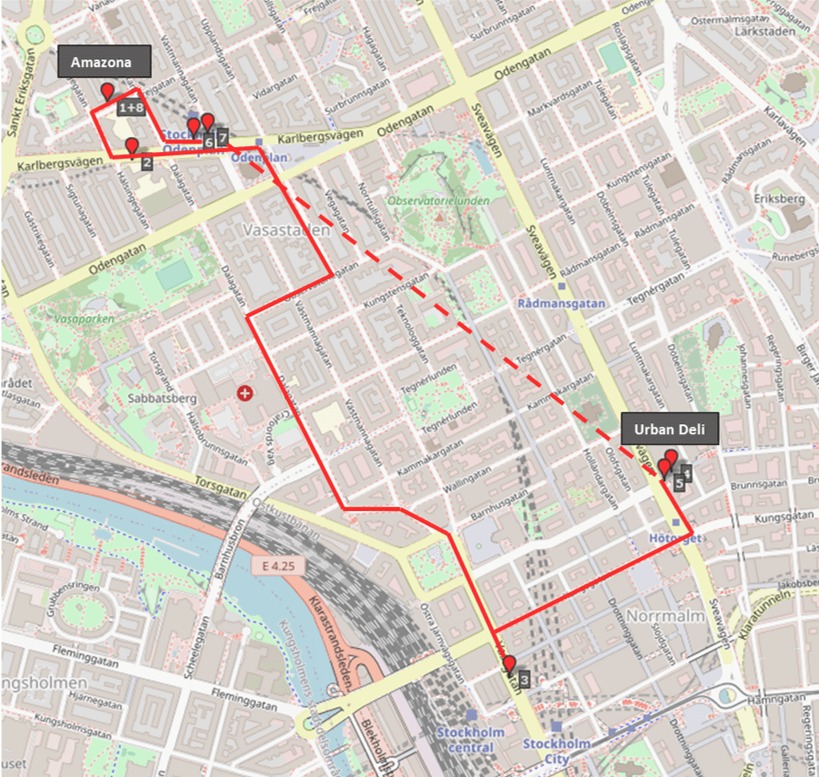REBECCA Validation Study: GPS Monitoring for Breast Cancer Survivors’ Mobility
Karolinska Institutet researchers, in collaboration with the Breast Cancer Association Amazona in Stockholm, spearheaded a validation study for the REBECCA system involving 17 voluntary members in June. The study aimed to assess the viability of utilising GPS signal analytics from smartphones to monitor the mobility of breast cancer survivors in real-world conditions.
The participants, aged between 45 and 70, were breast cancer survivors capable of visiting the AMAZONA premises in central Stockholm. The data collection spanned approximately 4 to 5 hours across two days, focusing on scripted scenarios that included moderate physical activity, diverse modes of public transportation, and visits to various locations, such as the Amazona office, a restaurant, and a nearby shop.
Study route:
The route commenced at the Amazona office, where participants installed the REBECCA app on an Android smartphone, paired with a Garmin watch equipped with the proprietary REBECCA app. Subsequently, the group embarked on a journey: travelling by bus to Stockholm’s Central Station, walking to a pre-selected restaurant for dinner, and monitoring their activities via the REBECCA app. Later, they utilized the metro, visited a nearby shop (half of the group entered while the others waited outside), and concluded by returning to the Amazona office, providing feedback on their experience with the REBECCA system via a questionnaire.
POI corresponding to each number:
1+8: The Amazona office
2: Bus stop
3: Bus stop (at the central station of Stockholm)
4: The pre-selected restaurant
5: Metro station
6: Metro station
7: Grocery store

Results and next steps:
The initial data analysis primarily focused on validating the REBECCA system’s ability to automatically identify Points of Interest (POI) in participants’ daily routines, including visits to the Amazona offices and the restaurant. To validate the system’s accuracy, researchers maintained external diaries of visits and their durations. The analysis revealed a 72.5% correct detection rate of visits, with 54.1% accurately measured visit durations. These promising results, derived from a brief cross-sectional study, denote the functional validity and technological viability of the core GPS-based monitoring mechanism of the REBECCA system, warranting further development for prolonged usage.
The ultimate aim is to enhance REBECCA’s features, enabling healthcare practitioners to evaluate patients’ metrics for time spent outside the home, work, recreational facilities, and other Points of Interest like restaurants. This analytical capability will be invaluable in comprehensively assessing an individual’s life space, a critical factor in ongoing discussions during health consultations with breast cancer survivors.
Data analysis for the validation study continues, with researchers exploring the potential identification of transportation modes (e.g., car, bus, metro, cycling, or walking) used by REBECCA users. Concurrently, patient-provided responses play a pivotal role in ongoing investigations, guiding future enhancements to the REBECCA system based on user experiences.
